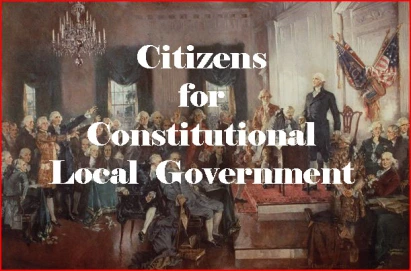The California appellate court in Telford[i] has taken a long sought defense in favor of homeowners against the negligence and bad faith dealings by the board, stating that the homeowners’ association is not relieved “from liability for breach of its fiduciary duties because it occupied ‘a particularly elevated position of trust’ due to its quasi-governmental status and ‘the many interests it monitors and services it performs.‘” (Emphasis added). The court added that: “because a homeowners’ association stands in a fiduciary relationship with the member homeowners,” a failure to monitor the project was a breach of its fiduciary duties to the memebrs in general. (Understand that the board does not have a fiduciary duty to any one specific member).
This single opinion strikes at one defect in the HOA legal scheme that was necessary for the widespread adoption and mass marketing of HOAs, the “free ride.” No longer will HOA boards get a free ride under the business judgment rule, but will now be held to act responsibly under its quasi-governmental legal status. The “free ride” laws and rulings were necessary to get uninformed, untrained and, in many cases, conscripted members, to join the board without any accountability. Now, this holding places a real-life awakening to the propaganda and myth that the HOA has no downside.
In this case, plaintiff Telford filed suit against the board on the basis of an approved construction project by a neighbor, charging a loss of quiet enjoyment, emotional stress, public and private nuisance, and negligence in enforcing compliance with the governing documents. (It is important to note that this was not a claim of contractual violations). Telford also charged that the approval “was not only negligent, but unreasonable, arbitrary and in bad faith” as its approval was based on friendships between the board and the member. Here, we are not only concerned with those broad powers and obligations granted to the board, but the application of the business judgment rule [BJR] that governs the broad, discretionary powers granted to the board. The Court repeated the precise ruling in Lamden (often neglected in CAI attorney citations): “deference is accorded only if the association has acted ‘upon reasonable investigation, in good faith and with regard for the best interests of the community association and its members.’” BJR is not a grant of unlimited powers to the board.
Furthermore, with respect to a breach of fiduciary duty, the Court stated that a “breach of fiduciary duty is a tort.” And as I mentioned elsewhere, a tort is a common law wrongful act that allows for punitive damages against the board and/or individual director. A tort provides a strng counter-measure against the one-sided financial damages that HOA boards are entitled under state laws and the governing documents.
A second very important opinion that is addressed in Telford is the HOA board’s defense that there is an exculpatory clause in the governing documents; that is, a clause that grants the board immunity from liability as a result of its actions. The Court held, however, that this type of clause was against public policy and therefore invalid:
The law has traditionally viewed with disfavor attempts to secure insulation from one’s own negligence or wilful misconduct[.] “Furthermore, it is the express statutory policy of this state that `[a]ll contracts which have for their object, directly or indirectly, to exempt anyone from the responsibility for his own fraud or willful injury to the person or property of another, or violation of law, whether willful or negligent, are against the policy of the law.’”
| Punitive damages are monetary compensation awarded to an injured party that goes beyond that which is necessary to compensate the individual for losses, and that is intended to punish the wrongdoer.
Punitive damages can serve to “police” the HOA board in view of the fact that state laws and the governing documents do not contain penalties, and serve to protect boards from accountability. See Public Policy, Tort Law and Planned Communities[ii].
|
Reference
i Telford v. Sagewood HOA, No. E048483, Cal. App. 4th Dist., Nov. 16, 2010.

Thanks Fred. Rule 8.1115 of the California Rules of Court allow for the following exceptions:
“An unpublished opinion may be cited or relied on:
“(1)When the opinion is relevant under the doctrines of law of the case, res judicata, or collateral estoppel; or
“(2)When the opinion is relevant to a criminal or disciplinary action because it states reasons for a decision affecting the same defendant or respondent in another such action.”
Note this is an unpublished ruling, which means it cannot be cited as authority in future cases.